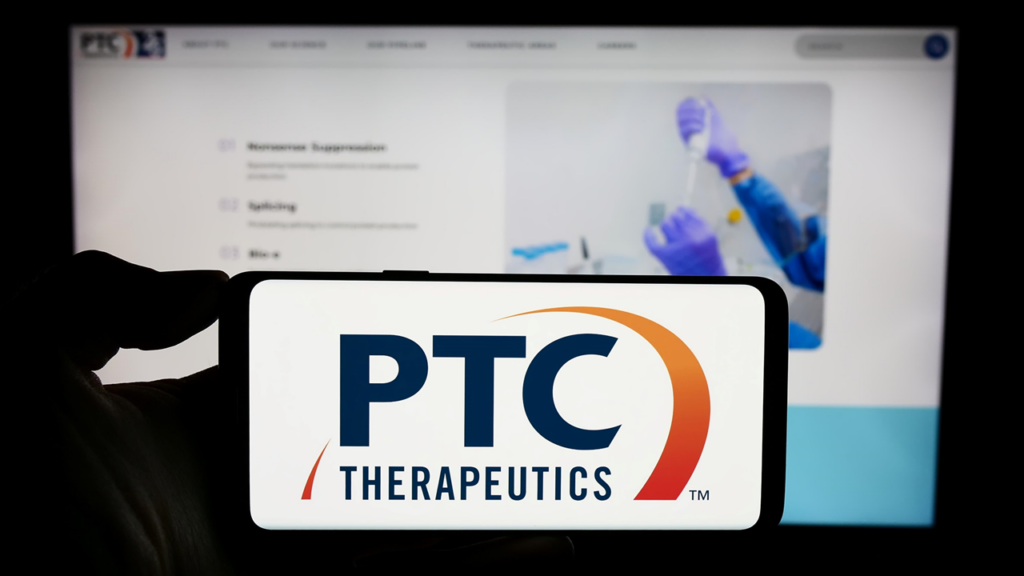PTC Therapeutics has gained US Food and Drug Administration (FDA) approval for its new gene therapy, Kebilidi (eladocagene exuparvovec), for treating aromatic L-amino acid decarboxylase (AADC) deficiency. This therapy, the first of its kind to be administered directly into the brain, addresses a rare genetic disorder that severely affects motor function and dopamine production.
While marketed in the US as Kebilidi, the same gene therapy is available in the European Union (EU) under the name Upstaza, following its approval there in July 2022 as the first gene therapy for AADC deficiency.
Kebilidi received accelerated approval based on an open-label, single-arm study with 13 children, all presenting with severe motor impairment.
Compared to the natural history of untreated cases, the study showed improvements in critical motor milestones like head control and sitting in eight of the 12 patients assessed at 48 weeks — milestones not typically seen in children with the most severe presentation of AADC deficiency. The FDA requires a confirmatory study to validate these findings, which is ongoing.
Kebilidi uses an adeno-associated virus (AAV) vector, a modified virus designed to deliver a functioning copy of the DDC gene to the brain, targeting the core deficiency.
The therapy is administered into the brain’s motor-control region through a specialized neurosurgery technique. This process, involving four infusions, requires skilled neurosurgeons and must be conducted at specialized centers.
The FDA also authorized the SmartFlow Neuro Cannula, a specialized infusion device by ClearPoint Neuro, Inc., for this purpose.
XTALKS WEBINAR: Challenges of Running Clinical Trials for Advanced Therapies and How to Overcome Them
Live and On-Demand: Monday, November 18, 2024, at 1pm EST (10am PST)
Register for this free webinar to understand the unique challenges of navigating clinical trials for advanced therapies and learn how strategic partnerships can help achieve successful results.
Symptoms of AADC deficiency, such as delays in motor skills like sitting, standing and muscle control, often appear in infancy, limiting development. Some patients also experience distressing episodes called oculogyric crises, in which the eyes lock upward in painful spasms. Treatment has been largely supportive until now, with no options to target the underlying cause.
By addressing this core deficiency, Kebilidi offers new potential for improved motor function. Kebilidi has a known safety profile from clinical trials. Common side effects include involuntary movements, fever and low blood pressure.
Procedural risks also involve respiratory and cardiac complications, and the therapy is contraindicated for patients who have not reached skull maturity — when the bones of the skull have fully fused, a process that generally completes in late adolescence — as assessed by neuroimaging. These precautions emphasize the need for specialized monitoring and care.
PTC Therapeutics is also advancing treatments for complex brain diseases with two oral small molecules.
Sepiapterin, under FDA review for phenylketonuria (PKU), recently received Fast Track designation and showed promising Phase III results in The Lancet, highlighting its potential to help PKU patients maintain dietary flexibility while controlling phenylalanine levels.
Utreloxastat, currently in the CardinALS trial for amyotrophic lateral sclerosis (ALS), is expected to have topline data by late 2024. These therapies are part of PTC’s broader strategy targeting rare, debilitating, neurological conditions like Huntington’s disease and Friedreich ataxia and more.
With Priority Review and Orphan Drug designations, Kebilidi’s approval reflects the FDA’s commitment to advancing treatments for rare diseases. As PTC prepares for launch, affected families now have a new option, signaling progress in gene therapy for central nervous system disorders.
The impact of gene therapies like Kebilidi lies in their potential to transform care for complex diseases with limited treatment options — a sentiment echoed by Dr. Peter Marks, director of the FDA’s Center for Biologics Evaluation and Research (CBER), in his statement in the FDA news release on the approval.












Join or login to leave a comment
JOIN LOGIN